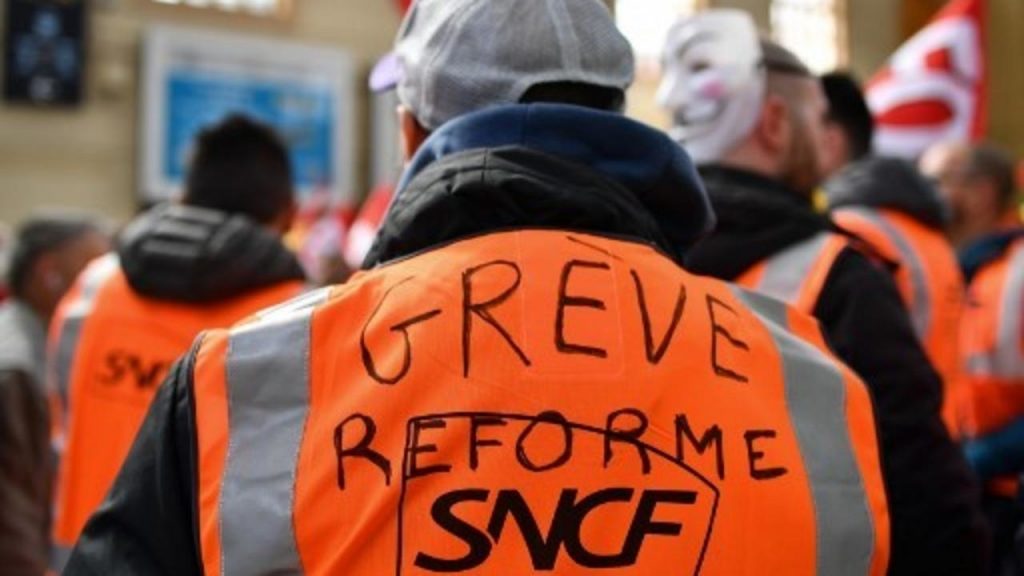The strike has been very strong in transport over land, the axis of
the Sarkozy government’s attack on the “special [retirement]
provisions,” and the backbone of the French workers’ movement today,
especially among the railway workers. The success of the strike call by the unions was particularly obvious on the trains, since only 5% of the scheduled runs in the country were made, and the management of the
railway firm SNCF acknowledged that almost three quarters of their
workers (73.5%) joined the strike. This percentage is higher than the
1995 strike, supported by 67% at the most difficult moment of the
conflict, which shows the massive nature of the present strike. In its
turn, urban transport appeared “severely disrupted” in Paris, with
most subway lines paralyzed or nearly so, but also in a large number
of the 28 other cities where the unions had made the strike call. The
only line that was running well was 14, which is completely automated.
However, the most significant thing is the fact that there were
numerous assemblies in the railroads where it was voted to continue
the strike, promoted in large part by SUD-Rail and FO, against the
opinion of the majority leadership of the CGT, that was only proposing
a “24-hour strike.” This is the case at all the train stations in
Paris, as well as in Lyon and Marseille. It is most likely that many
trains will remain on strike tomorrow (and it is also likely that
problems on the Paris Metro will continue). This is very encouraging;
it shows the intention of the rank and file to fight more seriously,
but it is not yet the beginning of a strike of indefinite duration. It
is anticipated that new assemblies will meet on Monday.
Some 25,000 people marched in Paris, mainly from the CGT (railway
workers, subway workers, bus drivers, and electricity workers that
were also affected by the anti-retirement measures proposed by
Sarkozy). There were demonstrations throughout France (a total of 130)
in several big cities, where, according to the police, 150,000 people
participated, and 300,000, according to the unions. There were also
solidarity strikes by workers not directly affected by the special
provisions, like postal workers, telecommunications workers, workers
from unemployment offices (the employees of these offices, Assedic and
ANPE, are opposed to a plan that would combine both entities), and
educational workers, but in that sector participation was reduced.
Although the government kept a conciliatory profile, with the Minister
of Labor, Xavier Bertrand, insisting that the reform “will be
progressive” in the special provisions, and that “the strike is not
impeding the dialogue,” Bertrand is unwilling to hand over anything
essential. He added that without the reform, “no one can guarantee”
that the workers covered by those provisions will be able to collect
their pensions “in five, ten, or fifteen years.” In the morning, the
presidential spokesman, Laurent Wauquiez, had said it more clearly:
“we cannot yield” on the matter of increasing the period of
contributions that gives the right to a complete pension for those
workers, a period that the reform will increase from 37.5 years to 40,
to bring them in line with workers under the general provisions. For
his part, Bernard Thibault, General Secretary of the CGT [union
federation], called on the government to begin “real negotiations.”
Next week there will certainly be government meetings with the union
leaders.
Finally, it is significant that this strike in France happened during
the strike by train drivers in Germany, the first conflict that shows
a clear break with the policy of wage moderation of all these years. A
real turning point for the main country in Europe.
Translation by Yosef M.











